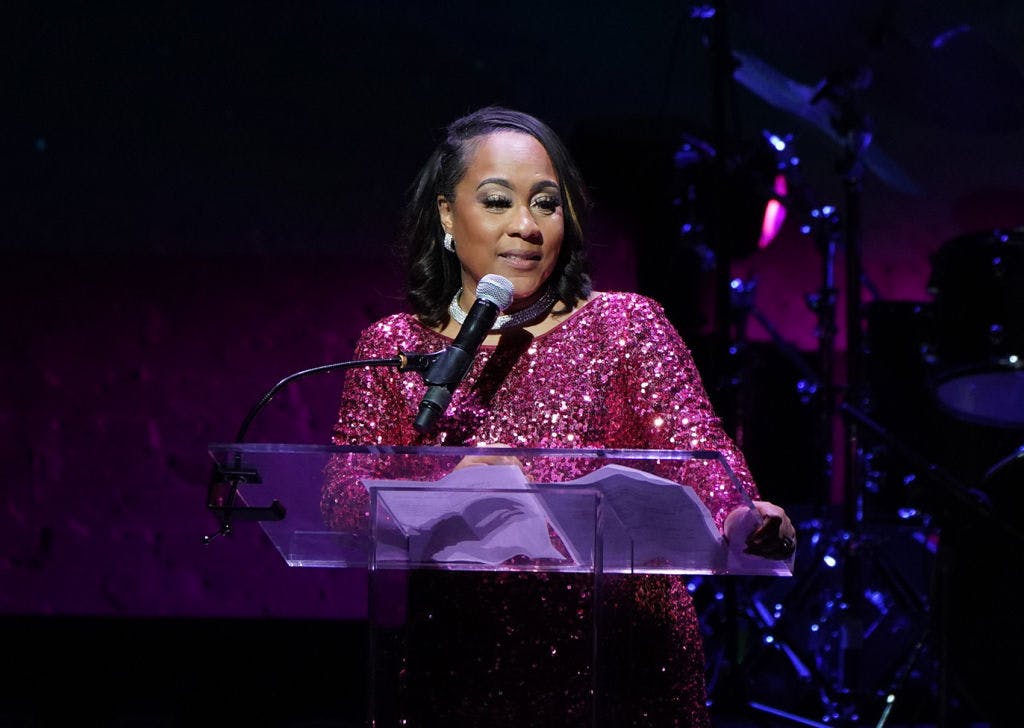Fani Willis Wins Her Day Before the Georgia Supreme Court — but Battle Looms Over Disqualification From Trump Case Due to Secret Romance
The Peach State’s highest tribunal will hear the district attorney’s case that she ought to be immune from subpoena by Georgia lawmakers.

The decision by the Georgia supreme court to hear a challenge from the district attorney of Fulton County, Fani Willis, contesting her subpoena by Republicans in the Georgia state senate is a victory for the prosecutor whose secret romance cost her — for now — the highest-profile case of her career.
Ms. Willis remains boxed out from the criminal racketeering case she brought against President Trump and his camarilla for alleged interference in the 2020 presidential election, and the sprawling case lingers in limbo. She has appealed that ruling to Georgia’s supreme court, as well. The ambitious prosecution has run aground due to scrutiny of Ms. Willis’s mix of her public duties with her love life. She won re-election in November by securing nearly 70 percent of Fulton County’s vote.
The Georgia senate subcommittee at issue here was convened to examine “various forms of misconduct” stemming from Ms. Willis’s prosecution. Ms. Willis has resisted the effort to compel her testimony by citing various forms of privilege and by arguing that the subpoena requests are overly broad and not related to a legitimate legislative need.
Ms. Willis’s disqualification stems from the romantic relationship she undertook with her handpicked special prosecutor, Nathan Wade. Her office paid him some $650,000 to lead the case — all while Ms. Willis and Mr. Wade took trips together to destinations like Napa Valley, Bermuda, and Belize.
Before his employment by Fulton County, Mr. Wade, who was going through a contentious divorce during his affair with Ms. Willis, had never prosecuted a felony before. She claims that she paid him back in cash stored at her house for the vacations the two took after she hired him. Her father testified under oath that the practice was a “Black thing.”
Mr. Trump and his co-defendants argued that the personal and financial relationship between Ms. Willis and Mr. Wade amounted to a conflict of interest. Evidence adduced by attorneys for one of the defendants appears to show thousands of telephone calls and text messages between the couple that predated his hiring. Mr. Wade has contended that workplace affairs are “as American as apple pie,” but the two deny dating before he was hired.
The trial judge, Scott McAfee, a Republican, found that the behavior of Ms. Willis and Mr. Wade — and their testimonies under oath during an extraordinary multi-day hearing in open court — emitted an “odor of mendacity” and was “legally improper.” He also found that the relationship conveyed “a significant appearance of impropriety,” but agreed to let Ms. Willis stay on the case if Mr. Wade departed.
Ms. Willis’s defendants successfully petitioned the Georgia court of appeals to overturn that verdict, and by a two-to-one margin that tribunal agreed that this was the “the rare case in which disqualification is mandated and no other remedy will suffice to restore public confidence in the integrity of these proceedings.” The appellate court, though, declined to dismiss the charges brought by Ms. Willis. It reckoned that such a ruling would be “extreme.”
If the supreme court decides to keep Ms. Willis disqualified, a new prosecutor will be appointed by an independent body of lawyers. That new prosecutor would possess the discretion to either press on with the case that Ms. Willis built or dismiss the charges. An attorney, Harvey Silverglate, for one of the defendants, John Eastman, tells the Sun that he is skeptical that the convoluted design of Ms. Willis’s case will survive her departure.
The lone dissenting judge on the court of appeals, Benjamin Land, wrote that he was “particularly troubled by the fact that the majority has taken what has long been a discretionary decision for the trial court to make and converted it to something else entirely.” Judge Land joined the court of appeals in 2022 as an appointee of the state’s Republican governor, Brian Kemp.
Judge Land added, “It is not our job” as appellate jurists “to second-guess trial judges or to substitute our judgment for theirs.” Ms. Willis’s petition to Georgia’s highest court expands on that line of argument, noting that never before has a prosecutor in Fulton County been disqualified for a “significant appearance of impropriety.”
Georgia’s highest court, like the United States Supreme Court, generally possesses the power of discretionary appeal. Here, though, it was obligated to hear the dispute because it touches on constitutional questions.

